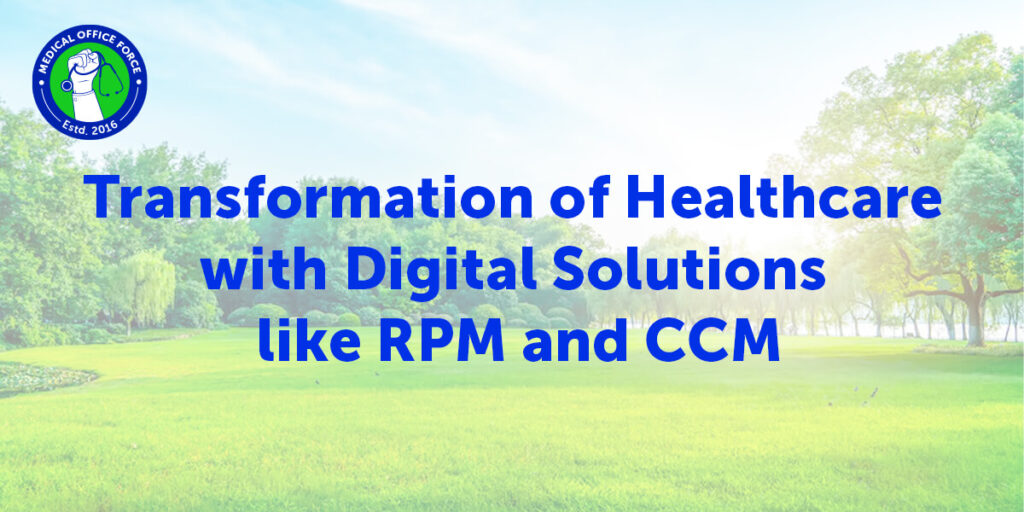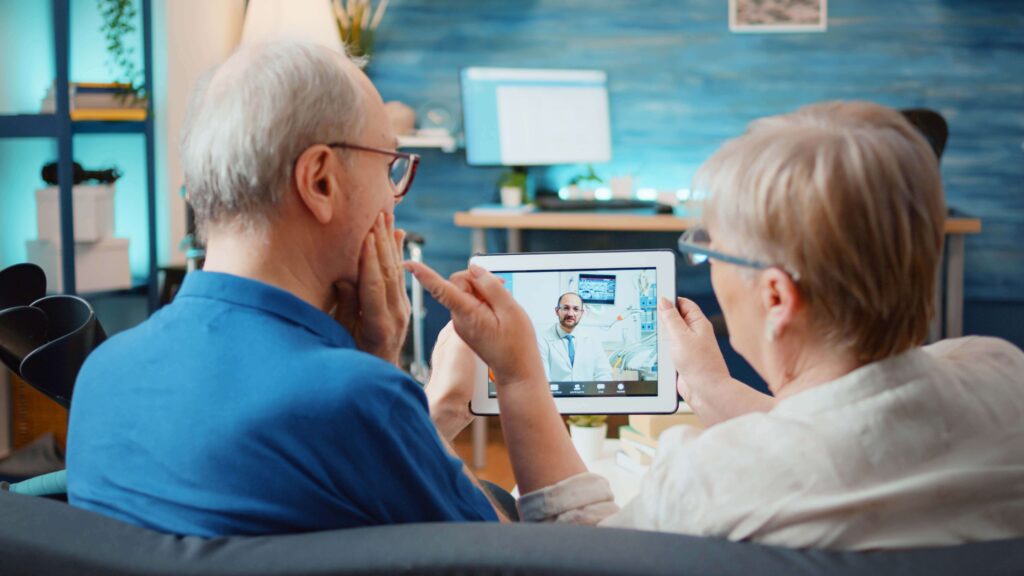
Transformation of Healthcare with Digital Solutions like RPM and CCM
The healthcare industry is embracing a profound transformation with digital solutions like Remote Patient Monitoring (RPM) and Chronic Care Management (CCM). These innovative technologies are reshaping the way care is delivered, creating a system that is more accessible, efficient, and patient-focused. Gone are the days of long clinic waits and impersonal interactions—digital health now offers continuous care tailored to individual needs, right from the comfort of home.
RPM enables real-time tracking of vital signs, allowing for timely interventions, while CCM provides comprehensive support for managing chronic conditions through personalized care plans and regular follow-ups. This digital evolution is paving the way for a smarter, more proactive healthcare experience, empowering patients and enhancing outcomes like never before.
Understanding Digital Health Services
Digital health services like RPM and CCM have redefined traditional healthcare by emphasizing prevention and early intervention. RPM allows healthcare providers to monitor patients’ vital signs and health data in real-time, ensuring timely action before minor issues escalate into severe complications.
CCM, on the other hand, focuses on managing chronic conditions through coordinated care. It involves regular virtual check-ins, personalized care plans, and continuous monitoring to ensure patients remain on track with their health goals. Together, these services create a seamless, patient-centered approach that prioritizes long-term well-being.
The Benefits of Digital Health Solutions
Digital health solutions offer a host of benefits for both patients and providers. RPM, for instance, eliminates the need for frequent in-person visits by enabling patients to monitor their health using wearable devices and apps. This saves time, reduces costs, and allows for the early detection of potential health issues.
CCM enhances care for patients with chronic conditions like diabetes or heart disease by offering ongoing support and care coordination. Patients receive regular virtual consultations, medication management, and tailored advice, empowering them to take control of their health.
Moreover, these technologies foster a sense of community and connection. Patients feel supported, knowing their healthcare providers are just a click away, ready to address concerns and provide guidance.

A Data-Driven Approach to Better Care
The integration of digital solutions into healthcare goes far beyond convenience—it represents a pivotal shift toward data-driven care that improves patient outcomes. By harnessing the power of data analytics, healthcare providers can gain critical insights into health trends, monitor patient progress, and identify potential issues before they escalate.
Early detection of warning signs allows for timely interventions, reducing the likelihood of hospitalizations and medical complications. This proactive approach enhances the quality of care, enabling more personalized treatment plans and fostering stronger patient-provider relationships. Ultimately, digital solutions empower healthcare systems to deliver efficient, preventive, and outcome-focused care tailored to individual needs.
Impact on Patient Outcomes
The adoption of RPM and CCM has had a profound impact on patient outcomes. By enabling continuous monitoring and timely interventions, RPM helps prevent health issues from worsening, reducing emergency visits and hospital admissions.
CCM takes patient care a step further by addressing the unique needs of individuals with chronic conditions. Regular check-ins and personalized care plans ensure patients stay on track, improving their quality of life and fostering long-term health management.
The Future of Healthcare
As technology continues to evolve, the potential for digital health services is boundless. Innovations such as AI-powered diagnostics, predictive analytics, and virtual reality therapies are on the horizon, promising even greater advancements in patient care.
The transformation of healthcare through digital solutions like RPM and CCM is a testament to the power of technology in improving lives. By embracing these innovations, the healthcare industry is paving the way for a future where care is more accessible, personalized, and effective, ensuring better outcomes for patients everywhere.
This digital revolution in healthcare is not just about treating illnesses but empowering individuals to take charge of their health and well-being, heralding a new era of proactive, patient-centric care.

Conclusion
The transformation of healthcare through digital solutions like RPM and CCM marks a groundbreaking shift toward a more proactive, patient-centered approach. These innovations are revolutionizing how care is delivered, blending technology with compassion to create a seamless, efficient, and personalized healthcare experience. By enabling continuous monitoring, early intervention, and coordinated chronic care, digital health solutions empower patients to take charge of their well-being while improving outcomes and reducing hospitalizations. As technology continues to advance, this evolution underscores a commitment to accessible, high-quality care. The future of healthcare lies in utilizing these innovations to build healthier communities and enhance lives globally.

